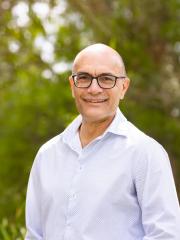Professor Mark Western

Researcher biography
Mark Western is Professor of Sociology, CPF and Research Director, The Queensland Commitment, UQ. The Queensland Commitment is the University’s 10-year strategy to address barriers to access, participation and attainment in higher education and at UQ specifically.
From 2008-2022 Mark was Founding Director of the Institute for Social Science Research, UQ where he led the development of research programs with government, industry and NGOs in areas such as Work and Employment, Education, Health, Policing and Security, Urbanisation, Social Policy, Housing and Homelessness, and Research Methods. Mark has published academically across the social sciences, and in cognate areas like economics, psychology and statistics. He has undertaken applied research projects and policy and program evaluations with government, industry and NGO partners in social policy and social services, housing and homelessness, health, education, policing and criminal justice, minerals and resources and work and employment. He led the first national study of computerisation in General Practice for the then Dept of Health and Aged Care, one of the first national studies of employment outcomes of graduates of Australian PhD programs for the Department of Education, and derived estimates that have been used to calculate the export value of education in the Australian National Accounts. He developed the evaluation framework for the multi-billion dollar Health and Hospitals Fund, and for Queensland’s 10 year domestic and family violence strategy, and has worked on some of Australia’s largest social policy evaluations, including of Paid Parental Leave, and the Try Test and Learn Fund. He is a Fellow of the Academy of Social Sciences in Australia, was Deputy Chair of the 2015 National Review of Research Training, and a member of the National Research Infrastructure Advisory Group, which advises the Australian government on National Research Infrastructure Strategy and Policy.
Mark’s current research examines the causes and solutions to educational and social inequality in Australia, and other wealthy countries, with a particular focus on trying to expand educational opportunities in school, university and vocational education and training for students from disadvantaged backgrounds. A second work-stream focuses on what he has called “solution-oriented social science”, working on real-world partners’ problems to drive advances in knowledge and achieve impact beyond universities. His third research area addresses the question “What is the point of universities?” in a world where trust and public confidence in universities and associated phenomena such as truth-seeking, expertise, science, democracy, and public institutions, seems to be on the decline.
